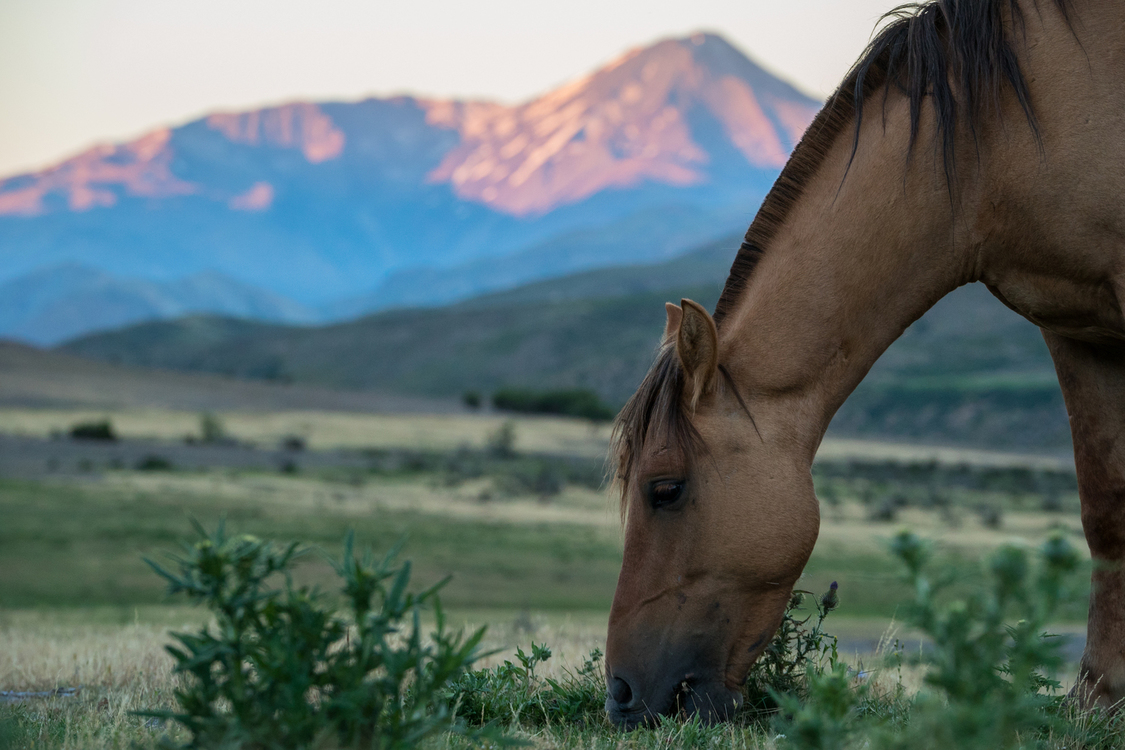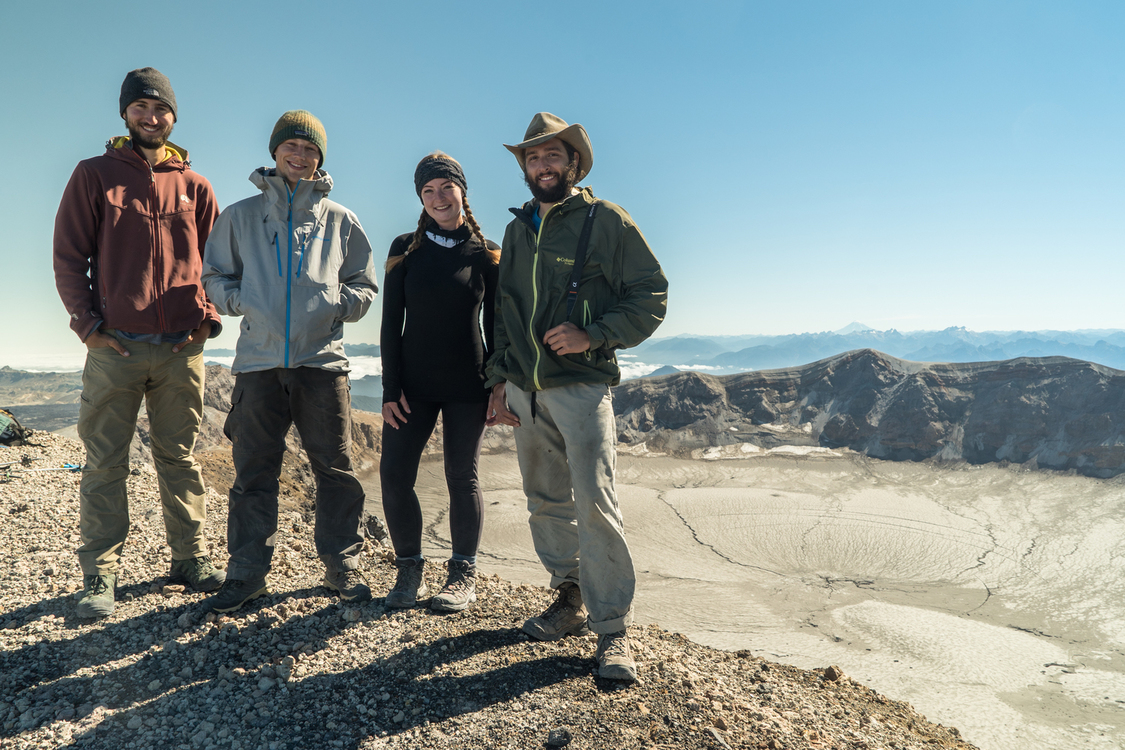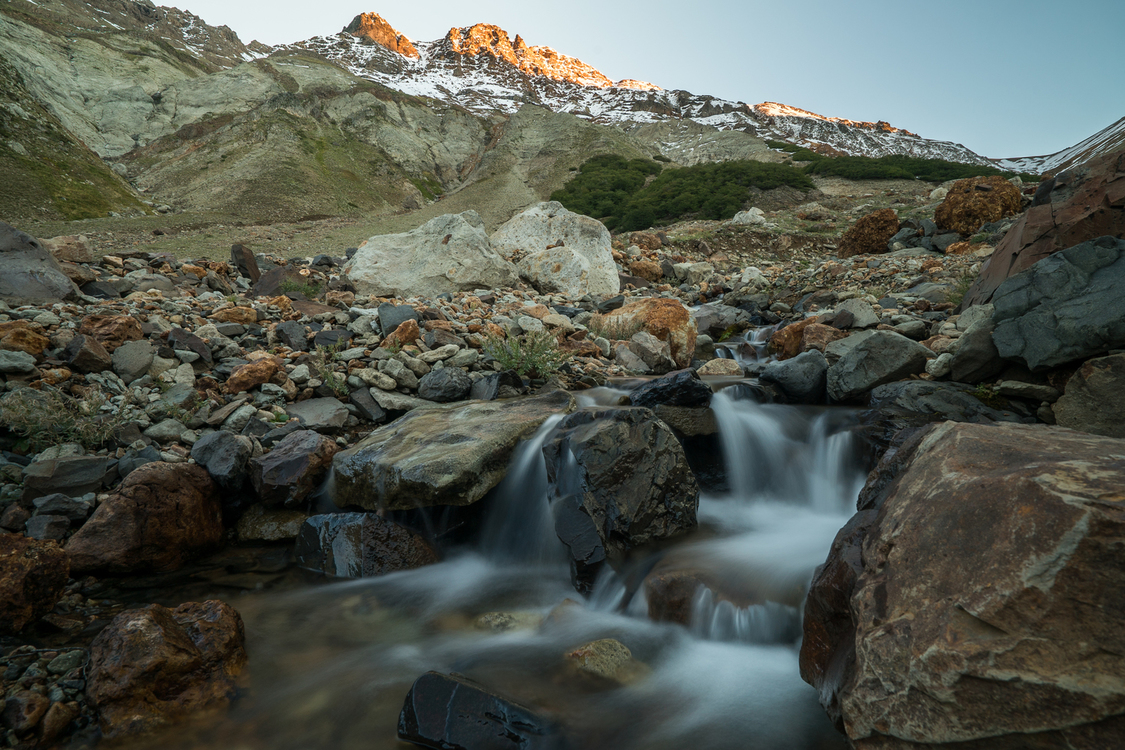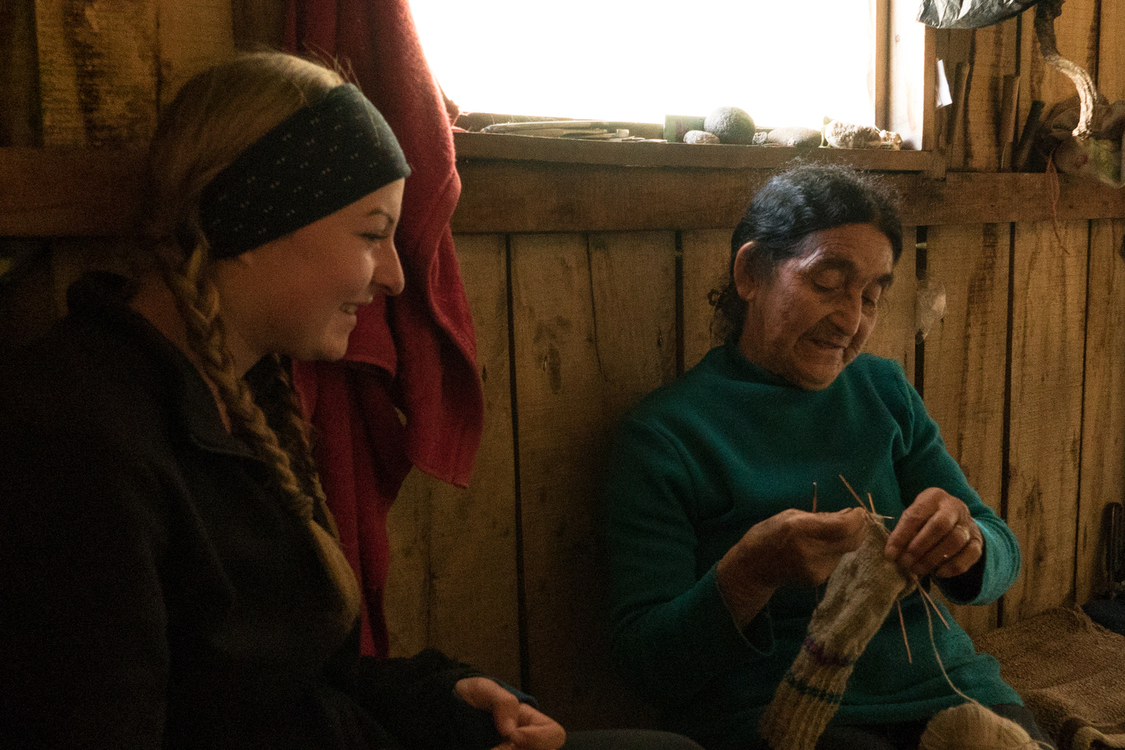Unbounded: Documenting the Greater Patagonian Trail

Unbounded: Documenting the Greater Patagonian Trail
Meet Translator Robyn McLellan
Interview by Gale Straub
Photos courtesy of Unbounded the Film
Robyn McLellan had hardly gone hiking when she decided to join the Unbounded documentary film crew for four months of trekking on the Greater Patagonian Trail (GPT). At ~1,900 miles (and counting), the GPT is the longest network of trails in South America. Acting as a Spanish translator for the crew, Britain-born Robyn found herself physically and emotionally tested but enriched in ways she could have never imagined:
“I was the only girl in an unaided crew of 4 and that definitely had its challenges, whether that was the shocked faces of the Chilean men when they realized my backpack weighed just as much as the boys’ or just lacking female company to relate to things that guys sometimes wouldn’t. Despite the challenges, we came away from the trip with a lot of stories of near death experiences, amazing cultural experiences and above all documenting somewhere, as yet, completely undocumented on film.”
I talked with Robyn over Skype. She was in Vancouver and I was in New Hampshire. What follows are excerpts from our conversation, lightly condensed for brevity. I hope you enjoy meeting Robyn as much as I.
Unbounded is currently raising funds for post-production on Kickstarter ->

Robyn with the Unbounded crew
Meet Robyn
G: Where were you living when you set off on your documentary project in Patagonia?
R: I met Aljoscha, [the co-producer of the film] through a small backpacking community that’s here in Vancouver. He worked at the same hostel as my housemate. He’d just finished hitchhiking across Canada. He posted on Facebook that they needed a girl that can speak Spanish to be our translator for a 4 month trek in Patagonia. A girl, specifically, because the crew was all guys and they wanted to balance it out the dynamic of the group.
I thought, why not? I wasn’t expecting to get picked at all, but I did, in the next few days, which was a complete whirlwind.
G: What attracted you to being a translator on this trip?
R: I thought, when am I ever going to get that opportunity again? I’m not experienced at all, and that’s a big piece of the documentary: we’re 4 unaided people in our early 20’s with very little experience. I think a big purpose of the film is showing people they can do things like this without being pros. This was such a rare opportunity that I wouldn’t get at any other point.
G: And, going into it with no experience, how did you train?
R: I run a lot, I’ve done a few half marathons. Physically, I knew I was quite fit. I hadn’t done a hell of a lot of hiking, to be honest. Hiking isn’t hugely popular in England – it’s just not something that you do. The lifestyle in Vancouver is different. I did do a few hikes to prepare, but trekking in Patagonia is a “learn-on-the-job” type thing. You really don’t know what to expect because Patagonia and Chile have such incredible terrain. It’s so extreme. The trail will change from cliff edges to desert sand dunes to desert forests – you never know what your’e going to get. There’s almost no way to prepare yourself because it’s such a unique place in the world.
I hadn’t done a hell of a lot of hiking, to be honest…but trekking in Patagonia is a “learn-on-the-job” type thing.
G: Do you feel more comfortable now that you’re back from South America?
R: Absolutely, I feel more comfortable now. My friends and family before I went said, “really, you, camping?” But I knew I could do it. You prove it to yourself. I really, really enjoyed it. I thought, maybe it’s going to be difficult, but it’s going to be worth it. Hiking has opened up a whole new world for me.
G: Why do you think your family said, “really you?”
R: I’m quite a girly girl. It’s not that I wasn’t outdoorsy – I grew up in the country and love going for walks. I think they see me putting on makeup and getting dressed up and they don’t equate that with thru hiking. But I really enjoyed it.
G: Did you have any expectations before you left?
R: It was difficult to have many expectations, there was so little information. It was more an idea than a concrete plan. [The hike was] going to follow the story line of whatever happens when we’re there, because the project’s a documentary. It was hard to know what to expect. I think physically, I knew it was going to be demanding. I’m very much a “yes” person. I tend to say yes first and think about the consequences later.
There were definitely points where I thought, “why am I doing this, this is so hard, can I do this?” But you push yourself because you can’t stop because you’re on a team and you’re supporting other people. The show has to go on regardless of injury or illness.
I’m very much a “yes” person. I tend to say yes first and think about the consequences later.

G: What were some of those hard moments?
R: I was sick – we were in this bamboo forest, section 12 of the Great Patagonian Trail. (We think it sounds like a great title for a horror film, because that’s what it was!) Section 12 was mountain passes that lead up to bamboo forest, but they hadn’t been trekked through in a long time and you needed a machete to get through them. The trail is not government owned or maintained. Some parts are cleared only every couple of years. We climbed a mountain pass, 18 km in one day with 50lbs on our backs. It’s a Chilean summer, so this is tough stuff.
We get to the entrance to this woodland area and the path gets narrower and narrower and more and more overgrown. We’re thinking, we have 3 km of this. We think, “We’ll be out of there, there’s hot springs on the other side. We’ll be in the hot spring by evening, it’ll be lovely.”
We spent 3 days in that forest.
We were whacking way through with our raft oars and crawling under branches. Oh, and there’s tarantulas as well to add to the mix. We did eventually get to the end of it on day 2. It had completely eroded so we made the decision to come back and retrace our steps. But it meant that we had a diminished supply of food and it was difficult to find water. We came out the other end and had to make camp. I got really sick, throwing up all day and all night. The boys let us stay for one more day, but I couldn’t keep down water and it was getting dangerous. They said we had to make a decision, “We either call the helicopter or you try and make it back, Robyn.” I had 18km and a mountain pass to hike while sick. The boys shared all the stuff and I walked it.
G: Wow, thinking about 4 months. There must have been so many hard moments.
R: Do you know what? You get used to being on the trail and being outside. Before I went on this trip, I built it up into this being, like, this is going to be so hard. And then I got there and I fell in love with the whole hiking thing. I really enjoyed it – I don’t think I ever allowed myself to think so much in my life.
And then I got there and I fell in love with the whole hiking thing…I don’t think I ever allowed myself to think so much in my life.
G: What is the vision for the documentary film crew in making Unbounded?
R: The film is Garrett’s idea. Originally, he wanted to show the indescribable factor of Patagonia. When we went into doing the documentary, always knowing it was going to follow our trip and the landscape, it turned into an environmental documentary. We talked to leaders of environmental organizations about what’s happening with the mining and damming. It became a huge focus of the film. It’s about the region and how untouched it is but also about preserving that.

A variety of landscape.
G: It’s so cool that you can’t map everything out in a documentary before you go. Does this make you want to be a part of future film projects?
R: It really has. I loved it. It was never something I thought I would do.
G: What was it like acting as a translator and interacting with locals?
R: I definitely had my fair share of sexism in Chile. For example, Anthony was our wilderness guide. He would do the cooking on the trail. We went to the rural police and I remember them being surprised: “Why are you not the one cooking?” And he said, “Are you not going to cook for your husband when you get married?” I was fuming, I play my own part in this documentary. To think I’ve come along as the cook… that was just outrageous. I was carrying a little bit less weight than the boys: 40 – 50 lbs, but pretty much the same and I’m 5’2”.
That was upsetting, but do you know what? So many of the people we stayed with were some of the most kind and welcoming people I’ve ever met. The kindness of people was beyond explanation.

Robyn at work.
Learn more about Unbounded and support them on Kickstarter. Follow along on Instagram, Facebook, and Twitter.
Be the first to comment